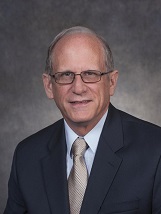McDonald: Michigan's workforce, future depend on degrees
From: Lansing State Journal: 5:52 a.m. EST January 3, 2016Article (web site) | Article (PDF)
Michigan's future depends on a workforce that is prepared for the high demand and secure jobs of the 21st century. That preparation requires a college degree or other certified job ready training and credentials.
The faculty and staff of Michigan‚€™s higher education institutions welcome the research, goals, and recommendations outlined in the report: "Reaching for Opportunity: An Action Plan to Increase Michigan‚€™s Postsecondary Credential Attainment."
This report was prepared by a workgroup coordinated by State Board of Education President John Austin, and calls for Michigan to be among the top ten states with a workforce possessing the post secondary learning necessary to compete and succeed in the new economy.
Four important areas of concern are addressed in the report:
First is the need to assist school districts in preparing students to succeed in post secondary education through improved career and personal counseling, better alignment of course work between high schools and colleges, and the enhancement of dual enrollment and early college opportunities.
Second, the report provides specific recommendations to improve the access and success of adult and other non-traditional students entering higher education institutions.
Career and personal counseling are also critical to these students, as are other support services such as: child care, flexible class schedules, and faculty mentoring in addition to instruction. Many of today‚€™s students have work and family responsibilities and very modest incomes.
For many, college is a difficult world to navigate. Many of these students are the first in their families to take college classes and are very apprehensive about their ability to succeed.
The report calls for systems to assure they are properly enrolled to avoid wasted time and effort ‚€“ and that they are counseled and mentored to ensure success.
Third, the report recognizes that college degrees are not the only means to successful futures. Apprenticeship programs, whether through industry or through industry-college partnerships, and other vetted and credentialed job training programs are appropriate for some students and some career goals. The report calls for a renewed commitment to apprenticeship programs and recommends a renewed partnership of business, labor and higher education to promote these programs.
 |
In particular, more full-time faculty, counselors and properly compensated part-time faculty as well as state-of-the-art technology are greatly needed to educate and train Michigan‚€™s workforce. Full-time and part-time faculty, who teach from 50 to 70 percent of all higher education courses, have the responsibility to prepare Michigan‚€™s workforce for secure, full-time career opportunities sufficient to support families. If we want more Michigan students to achieve post secondary learning, we need to increase the numbers of full-time faculty and compensate part-time faculty properly. A highly educated and trained workforce means a strong Michigan economy ‚€“ and that, in turn, means strong local communities, prosperous businesses and safe neighborhoods with thriving families. ‚€œReaching for Opportunity,‚€Ě which can be found at mitalentgoal2025.org, has identified essential goals and made specific recommendations to achieve these goals. It is time to exercise the political will to pursue them and secure Michigan‚€™s future. ‚€“ John McDonald is a vice-president of the American Federation of Teachers (AFT), serving on its Democracy and Human Rights Committee and Constitution Convention Committee. He has been a member of the AFT since 1969. |